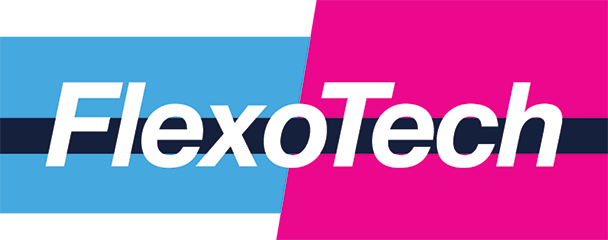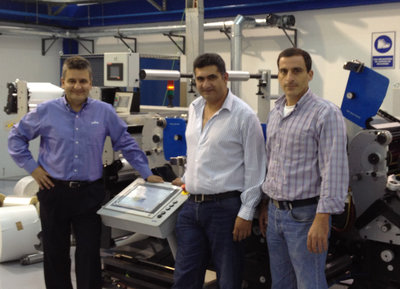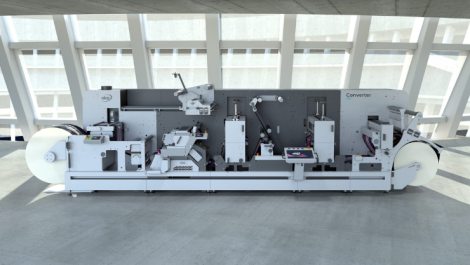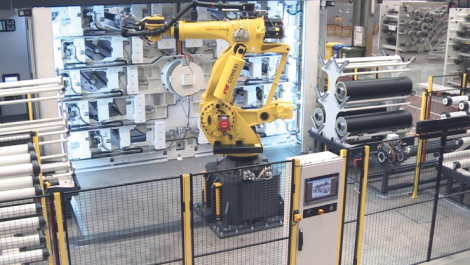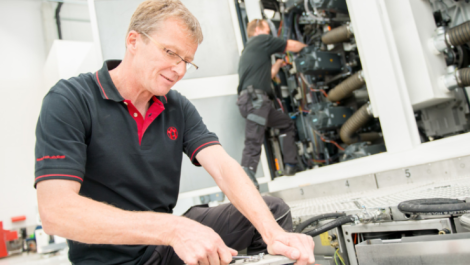(L-R) Hans-Ramón Hofmann, Gallus, Nicolas Zaidan, Fibrafil Peru, Dieter Lange, Heidelberg Peru with the new press
Grupo Fibrafil, based in the Peruvian capital Lima, is one of the leading Latin-American manufacturers of two agro-industrial products used in greenhouses – sun protection materials and binding twine for tomatoes. The company is now entering the label market and has therefore invested in a Gallus ECS 340 flexographic press.
The company has a workforce of approximately 80 employees at its plant in Peru. However, it is also represented in other countries in the region under the name of the umbrella organization, Grupo Zaidan. Grupo Zaidan consists of companies in Peru and Chile and has subsidiaries in Colombia, Costa Rica, Mexico and Uruguay.
Nicolas Zaidan, sales manager at Grupo Fibrafil, explained that the large growth potential on the Peruvian label market prompted the company to add label printing to its core business – the production of 1.82 million square metres of sun protection materials a month on 21 machines.
‘The Peruvian label market is not particularly well developed. A lot of labels are still imported from abroad. After installing the new press, we were able to attract many branded companies for whom the shorter delivery times of our labels are of critical importance,’ said Mr Zaidan.
To meet the needs of the Peruvian label market, the company chose to buy a Gallus ECS 340 flexographic press. This press has a technical granite core that ensures very quiet operation and enables easy access to the printing and processing stations. The press is equipped with eight printing units, a UV drying system, a servo-drive system, front-operated die-cutters and printing cylinder and anilox roller sleeves. It also boasts a very short web path that cuts setup times and waste significantly. According to Mr Zaidan, the press will be used to produce prime, security and PVC labels with an annual capacity of 2 million square metres.
For the time being, the new label press will be housed in a dedicated, 1000 square metre area at the 15000 square metre plant. However, the company is already in the process of buying an 8000 square metre site nearby, where the label department – which will be operating under the name Sigmaflex – will move next year.
Initially, the company is looking to concentrate on the domestic label market, where Mr Zaidan sees great potential in the food, cosmetics and pharmaceutical industries. Labels for its own agro-industrial products will account for 25% of production.
However, Grupo Fibrafil is also looking to use its existing network to export labels to other Latin American countries in the future. As it already supplies agro-industrial products to its companies abroad, the export costs for the labels supplied would be eliminated. The Grupo Zaidan companies will therefore soon be hiring employees responsible solely for the label market. Further label presses may then be deployed, including in the other countries where the group is already active. Seen in this light, the purchase of the Gallus ECS 340 is just the beginning, according to Mr Zaidan.
